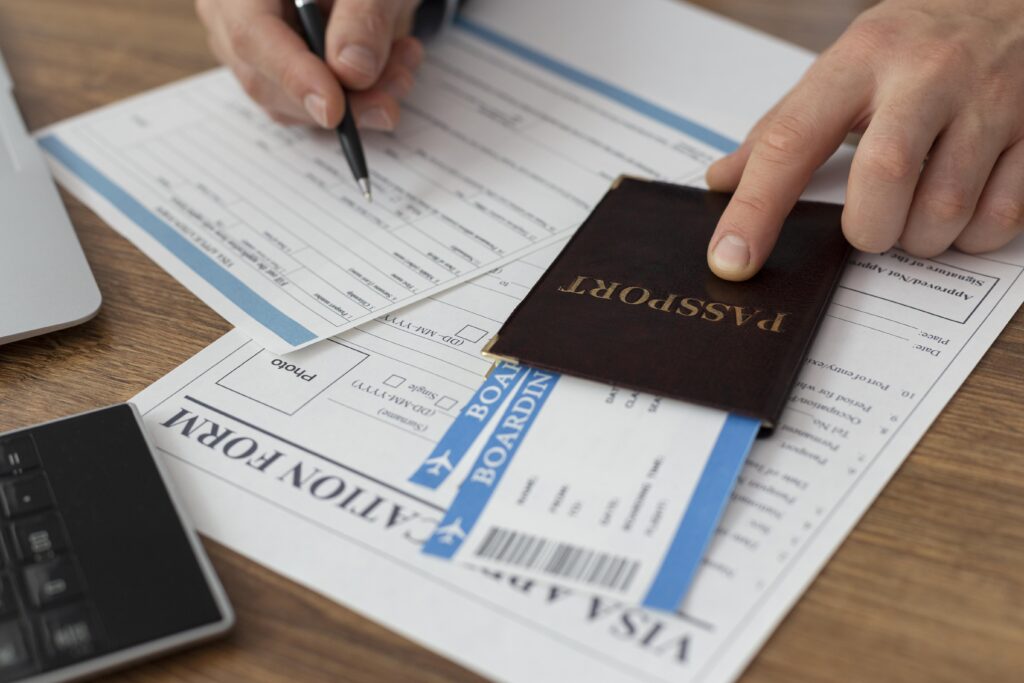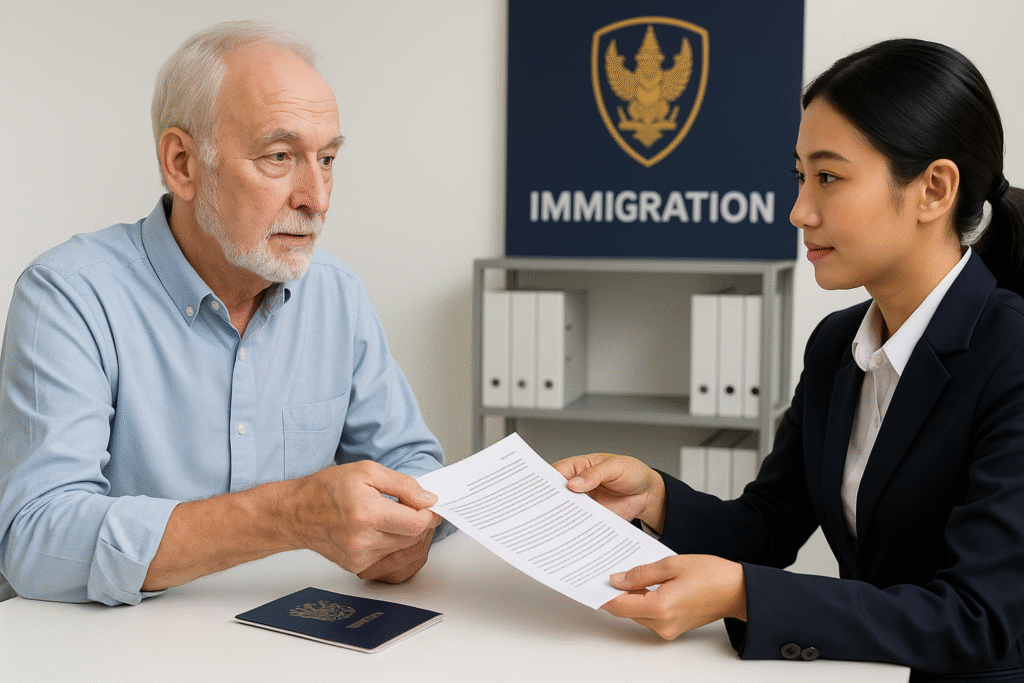Thailand is one of the most popular destinations for retirees, thanks to its beautiful scenery, modern amenities, affordable healthcare, and warm climate. But enjoying that lifestyle long-term legally and with peace of mind it’s important to understand the Thailand Retirement Visa and follow the rules carefully.
This guide explains everything you need to know about the Thailand retirement visa in 2025, including eligibility, application options, staying compliant, and alternative visas to consider.
What Is the Thailand Retirement Visa?
The Thailand Retirement Visa is a long-term visa aimed at foreigners aged 50 or older who want to live in Thailand legally without working. Also called the Non-Immigrant “O-A” Visa, it allows you to stay in Thailand for 12 months initially, with the option to renew yearly without leaving the country.
Unlike tourist visas or temporary extensions, the retirement visa is designed for individuals with no intention to work in Thailand. Instead, it supports a peaceful, structured retirement with legal residency status and access to essential services including healthcare, banking, and long-term housing.
This visa does not lead directly to permanent residency or citizenship, but it does offer legal residence and access to services like healthcare, banking, and housing, making it ideal for a peaceful retirement.
Key Requirements for the Thai Retirement Visa
To qualify for the Retirement Visa, applicants must meet both age and financial criteria. The process differs slightly depending on whether you apply inside or outside Thailand, but the core requirements remain consistent:
- Age: Applicants must be at least 50 years old on the date of submission.
- Financial Proof: Applicants must meet one of the following financial thresholds:
- A Thai bank account balance of 800,000 THB, held for at least two months before application.
- A monthly income or pension of at least 65,000 THB.
- A combination of savings and annual income totaling at least 800,000 THB per year.

You must prove that your income and savings come from legal sources and are legitimately transferred from overseas if applicable. Documents such as bank statements, embassy letters, or income certification will be required.
Also, applicants for the O-A visa must present valid health insurance that meets minimum government thresholds (400,000 THB inpatient and 40,000 THB outpatient coverage). Insurance must be active at the time of application and renewal.
Additional documentation may be required based on your application route, including a medical certificate, police clearance, or embassy income verification letter.
Application Routes: In Thailand or Abroad
There are several ways to apply for a Thailand Retirement Visa, depending on your current location and immigration status. The most common methods include:
1. Applying from Your Home Country
Applicants can submit their visa application to a Thai Embassy or Consulate abroad. This typically requires a full set of supporting documents, including a police clearance, health certificate, and health insurance.
2. Applying in Thailand via a 90-Day Non-Immigrant “O” Visa
An alternative is to obtain a 90-day Non-Immigrant “O” Visa abroad, travel to Thailand, and then apply for the retirement extension while in the country. This route requires you to remain in Thailand for at least 60 days before converting your visa.
3. Converting from a Tourist Visa Within Thailand
If you are already in Thailand on a Tourist Visa or visa exemption, and you meet the retirement visa criteria, it is possible to apply for a Non-Immigrant “O-A” and subsequently extend it to a retirement visa. However, this process must be carefully managed to avoid overstays or legal issues.
SVBL provides full support for all three paths, ensuring that timing, documentation, and compliance requirements are properly aligned.
Staying Compliant After Approval
Receiving your visa is just the beginning. As a Thailand Retirement Visa holder, you are required to maintain certain conditions to keep your visa valid.
- 90-Day Reporting: All Retirement Visa holders must report their residential address to immigration every 90 days. This can be done in person, online, or by appointing a legal representative with Power of Attorney.
- Re-entry Permit: If you plan to leave Thailand temporarily during your visa validity, a re-entry permit is required to preserve your visa status. This must be obtained either at the immigration office or at the airport prior to departure.
- Visa Renewal: The Retirement Visa is valid for one year and can be renewed annually. For renewal, the financial evidence must be re-verified. The required bank balance must now be held for three months prior to the renewal application, rather than two.
Failure to meet any of these conditions can result in penalties, visa cancellation, or complications with future applications.
Retirement Visa vs. Alternatives: What’s the Best Fit?

While the retirement visa suits many, some individuals may find other long-term options more aligned with their lifestyle or estate planning goals. SVBL helps clients evaluate all possible routes, including:
Thailand Privilege Visa
Ideal for individuals who want a long-term stay without financial reporting or frequent renewals, the Thailand Privilege Visa provides 5–20 years of residency depending on membership tier. It includes concierge services, expedited immigration, and exclusive lifestyle benefits. While this visa doesn’t exempt you from tax obligations, it is highly convenient and well-suited to retirees seeking administrative ease.
Long-Term Resident (LTR) Visa – Wealthy Pensioner Category
The LTR visa offers a 10-year stay and reduced reporting obligations (annual instead of every 90 days). It is suitable for retirees with overseas pensions and significant assets. While the eligibility requirements are more rigorous, this visa includes tax exemption on foreign income, a significant advantage under the evolving Thai tax regulations.
Planning for Taxes as a Retiree in Thailand
Starting in 2024, foreign income brought into Thailand by residents staying 180+ days a year is subject to Thai income tax. As of 2025, a further revision is expected to impose tax liability on all foreign income, regardless of whether the funds are brought into the country.
This means retirees need to plan carefully to manage their tax obligations. Professional advice is key to understanding your tax residency and possible exemptions under Thai law.
Ready to Retire in Thailand?
Planning ahead will help ensure your retirement is smooth and fully legal. Whether applying from abroad, converting a tourist visa, or renewing your existing visa, it’s important to understand the rules and prepare your documents accurately.
At SVBL, we guide retirees through the legal landscape of Thai immigration, ensuring you secure the visa solution that fits your lifestyle and income structure while ensuring full compliance with Thai laws. Speak with one of our legal experts to start your retirement journey on the right footing today.


